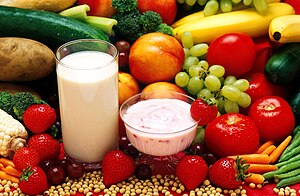
Food and beverage manufacturers today are capitalizing on natural trends in their search for innovation opportunities. We know food prices are increasing, but so are the number of health-conscious Americans. In a food industry increasingly competing for farmers market consumers, the buzz words on store shelves these days are raw, organic and GM-Free.
Some of the innovation opportunities that are in the limelight today are seen in the shift to more gluten-free foods, special oils, alternative grains, healthier vegetarian drinks and better genetically modified food component labeling.
Gluten-free food requests are reaching a new high. According to the market research firm NPD, a third of U.S. adults have expressed interest in reducing or even avoiding gluten. Grocery stores are packed with gluten-free breads, pasta, bakery items and other traditional carbohydrate-enriched foods. Restaurants have seen many consumers desiring gluten-free or wheat-free menu items.
As part of a continuing trend, consumers are demanding more mono-saturated fats, and we continue to see the rise in specialty olive oils.
You’ve probably already noticed the crackers, chips and snacks that are made of more whole seeds. Fax, sesame, quinoa and hemp are becoming new food choices.
In the world of beverages, tea drinkers are familiar with many of the standby herbs, but many are also experimenting with interesting-sounding blends like carrot curry, broccoli cilantro or spinach chive.
Smoothies aren’t just for berries anymore. And kale may be more than just a garnish. Dark leafy greens like kale and spinach are packed with nutrients. And with the popularity of the new high-powered juicing and blending machines, health-conscious connoisseurs are putting greens in their smoothies, along with the fruit. Powdered versions of the green superfood are also available at health food stores or in the organic aisle at the grocery store.
And in the area of high-tech, engineered foods, consumers are becoming more educated on how genetically modified (GM) grains have transformed our food supply. And while modified wheat and corn have made it possible to feed more hungry people around the world, there is discussion of whether eating GM foods has potential health impacts.
To help consumers that might have concerns, whether founded or unfounded, we are beginning to see GM food labeling. Just recently Whole Foods Market became the first national grocery chain to address this and they have set a deadline of 2018 for full GM transparency — that is the products available in their North American stores will be GM-labeled in the next five years.
Better labeling of food can’t be anything but good for all of us. Improved identification of ingredients and calories will help us make better choices for our well-being and for our long term health.
There is no doubt the food and beverage industry is evolving, with a driving theme of health and health consciousness. It is exciting to follow the offerings, and fun to try the new things that are coming out. Although I have to say, I don’t know how many of us will be ordering a spinach smoothie anytime soon.
